“Look to my coming on the first light of the fifth day, at dawn look to the east.”
The last words of Gandalf as he left the remnants of the Fellowship and the people of Rohan in search of reinforcements for the battle against Saruman’s army of evil in Lord of the Rings were in my mind this week.
Or perhaps Sam & Dave are more appropriate than Sam and Frodo. “Hold on, I’m coming” they sang in the 1966 soul classic.
“When the day comes and you’re down baby, in a river of trouble and about to drown, just hold on, I’m coming.”
Why were these thoughts in my head? Well, last Monday the European Commissioner for Agriculture Janusz Wojciechowski addressed the Irish Farmers' Association (IFA) council.
Unusual
It may have been unusual for the Polish politician to have found himself in a roomful of farmers and he worked hard to connect with his audience. He was from a farm and had worked on the family farm as a youngster, so he understood farmers, he said.
And he had a message of reassurance regarding support for food production. Food security must be placed alongside defence and energy security as a priority for the EU.
He pointed out the discrepancy between the 0.3% of the EU’s GDP spent on agriculture through the CAP, contrasting it with the 2% of GDP spent of defence. When the EU’s future budget was being debated, he would be pushing for more funding for farming.
This, as you can imagine, went down well with the room. However, the timescale of what the Commissioner spoke of needs to be understood.
Long wait ahead
The EU’s budget is planned over a multi-annual financial framework (MFF). The current one runs from 2021 to 2027. The next one - the one Janusz Wojciechowski is referring to - won’t commence until 16 October 2028.
Hold on, I’m coming, indeed. We’ll be holding on for quite a while. Considerably more than waiting the first light of the fifth day.
Sectors dying before our eyes
The reality is that such help is likely to be much too late for many sectors of Irish farming.
Our pig and poultry sectors are currently on life-support, our fruit and vegetable producers in critical care.
There is no hope of these four sectors surviving this MFF and this CAP into the one Commissioner Wojciechowski is promising change for unless something changes.
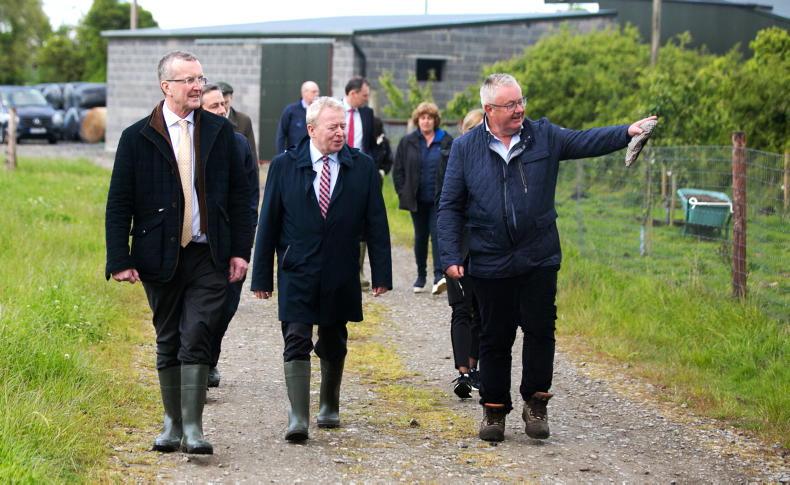
European Commissioner for Agriculture Janusz Wojciechowski visited a number of farms as part of his trip to Ireland on Monday.
The CAP reform the Commissioner presided over won’t take effect until next year.
He effectively admitted last Monday that it is no longer a blueprint for the production of an abundant supply of affordable, high-quality food for the people of Europe that also manages to deliver a living wage to the ten million farmers of the EU, while reducing the impact of food production on the wider natural world. For that is the remit of the CAP.
It’s a lot to ask for with just 0.3% of GDP, to be fair
It’s a lot to ask for with just 0.3% of GDP, to be fair.
And optimism that the recent transformation in the fundamentals of the economics of food production would be a short-term and temporary effect are fading.
The Russian invasion of Ukraine has laid bare a generation of 'voodoo economics'. Farmers have been subsidised to compensate for farmgate food prices that don’t cover production costs. The true cost of food production was thus masked. That is now over. The whole thing is now falling apart in the more vulnerable sectors.
It will take significant food price increases to stabilise Irish pig, poultry, fruit and vegetable production. And retailers must narrow their margins or consumers will have to entirely carry the can.
Grim EPA warning
Commissioner Wojciechowski also made soothing noises around livestock numbers. Praising Ireland for the scale of our milk and beef output, he said there was no intention to reduce livestock numbers.
A great man for a statistic, Wojciechowski highlighted our output of dairy and beef per capita, which is the volume of milk and beef per head of population. That’s human population rather than cow or cattle numbers.
On this metric, we are miles clear of other EU countries, with twice the dairy output of the Danes, our nearest rivals, and over five times the beef output of the Dutch. Again, this all sounds very encouraging. Of course, Irish farming would also highlight the low carbon footprint per kilo of milk or meat from our grass-based production systems as a meaningful statistic.

EPA general director Laura Burke said Ireland's farm sector needs a clear plan to reduce emissions. / Donal O' Leary
However, perhaps a more accurate reflection of where we really are came from Laura Burke, the Environmental Protection Agency (EPA) director. "In the agriculture sector, we really do need a transformation" she said. "We are particularly concerned when it comes to agriculture". referring to Ornua's marketing of the sustainability of Irish food, she said "At the moment we're talking the talk, but we're not walking the walk" she said, saying we need to "live up to our environmental credentials".
For Laura Burke, it's all about reducing net emissions from farming. Becoming more efficient in terms of the carbon footprint of a growing food output is irrelevant. “Efficiency doesn’t cut it any more,” she said.
Upper end of the range
Laura referred to the 2030 emissions target for farming as 30%, not 21% to 30%. The upper end of the range set for farming, not the range. Today (Saturday 4 June), the front page of the Irish Times has a story saying every sector will have to hit the upper end of their range. It always felt like the ranges were more about a political "soft-landing" than a less demanding target for transport, energy or indeed agriculture. We've now reached the moment of reckoning.
All the soothing words of Commissioner Wojciechowski, Minister for Agriculture Charlie McConalogue, Taoiseach Micháel Martin or Tánaiste Leo Varadkar must be seen in that context. When they say that farmers won’t be “forced” to cut numbers, that it “isn’t their intention” to reduce food output, they are leaving considerable wriggle room for themselves.
Led down a chute
Farming will be led down a chute, where incentives or supports to remain in high carbon output activity will be steadily stripped away, irrespective of the relative unit of output efficiency involved. Individual farmers may have no more choice than a ewe in a sorting race.
Individual farmers won’t be forced out of suckler production, they’ll be eased out. But they’ll be out just the same.
Darren Carty last week reported that suckler births are down, with suckler cow numbers back by over 25,000 this year.
That decline predated the Russian invasion and all it brings.
Next year will see the new CAP - the Wojciechowski CAP - with many suckler farmers seeing a cut in payments. With the cost of keeping cattle growing faster than the price of beef, we could soon reach a tipping point.
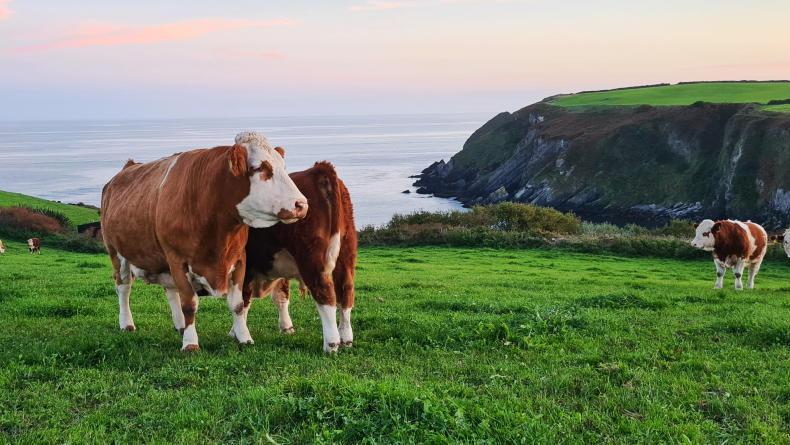
Many suckler farmers will see a cut in payments under the next CAP.
By 16 October 2028, when the Commissioner and his cavalry arrives on the eastern horizon with the new CAP payments in his hand, the army of Irish suckler farmers may have been lost.
Along with the battalions of pig and poultry producers and the brigades of fruit and vegetable growers, they may have been lost.
If that has happened, Ireland will have reduced the carbon footprint of our food production.
But we will have probably increased the carbon footprint of Irish food consumption and we will definitely see our output replaced by higher-carbon footprint production.
A battle won for the EPA, but not an inch closer to winning the war.
“Look to my coming on the first light of the fifth day, at dawn look to the east.”
The last words of Gandalf as he left the remnants of the Fellowship and the people of Rohan in search of reinforcements for the battle against Saruman’s army of evil in Lord of the Rings were in my mind this week.
Or perhaps Sam & Dave are more appropriate than Sam and Frodo. “Hold on, I’m coming” they sang in the 1966 soul classic.
“When the day comes and you’re down baby, in a river of trouble and about to drown, just hold on, I’m coming.”
Why were these thoughts in my head? Well, last Monday the European Commissioner for Agriculture Janusz Wojciechowski addressed the Irish Farmers' Association (IFA) council.
Unusual
It may have been unusual for the Polish politician to have found himself in a roomful of farmers and he worked hard to connect with his audience. He was from a farm and had worked on the family farm as a youngster, so he understood farmers, he said.
And he had a message of reassurance regarding support for food production. Food security must be placed alongside defence and energy security as a priority for the EU.
He pointed out the discrepancy between the 0.3% of the EU’s GDP spent on agriculture through the CAP, contrasting it with the 2% of GDP spent of defence. When the EU’s future budget was being debated, he would be pushing for more funding for farming.
This, as you can imagine, went down well with the room. However, the timescale of what the Commissioner spoke of needs to be understood.
Long wait ahead
The EU’s budget is planned over a multi-annual financial framework (MFF). The current one runs from 2021 to 2027. The next one - the one Janusz Wojciechowski is referring to - won’t commence until 16 October 2028.
Hold on, I’m coming, indeed. We’ll be holding on for quite a while. Considerably more than waiting the first light of the fifth day.
Sectors dying before our eyes
The reality is that such help is likely to be much too late for many sectors of Irish farming.
Our pig and poultry sectors are currently on life-support, our fruit and vegetable producers in critical care.
There is no hope of these four sectors surviving this MFF and this CAP into the one Commissioner Wojciechowski is promising change for unless something changes.

European Commissioner for Agriculture Janusz Wojciechowski visited a number of farms as part of his trip to Ireland on Monday.
The CAP reform the Commissioner presided over won’t take effect until next year.
He effectively admitted last Monday that it is no longer a blueprint for the production of an abundant supply of affordable, high-quality food for the people of Europe that also manages to deliver a living wage to the ten million farmers of the EU, while reducing the impact of food production on the wider natural world. For that is the remit of the CAP.
It’s a lot to ask for with just 0.3% of GDP, to be fair
It’s a lot to ask for with just 0.3% of GDP, to be fair.
And optimism that the recent transformation in the fundamentals of the economics of food production would be a short-term and temporary effect are fading.
The Russian invasion of Ukraine has laid bare a generation of 'voodoo economics'. Farmers have been subsidised to compensate for farmgate food prices that don’t cover production costs. The true cost of food production was thus masked. That is now over. The whole thing is now falling apart in the more vulnerable sectors.
It will take significant food price increases to stabilise Irish pig, poultry, fruit and vegetable production. And retailers must narrow their margins or consumers will have to entirely carry the can.
Grim EPA warning
Commissioner Wojciechowski also made soothing noises around livestock numbers. Praising Ireland for the scale of our milk and beef output, he said there was no intention to reduce livestock numbers.
A great man for a statistic, Wojciechowski highlighted our output of dairy and beef per capita, which is the volume of milk and beef per head of population. That’s human population rather than cow or cattle numbers.
On this metric, we are miles clear of other EU countries, with twice the dairy output of the Danes, our nearest rivals, and over five times the beef output of the Dutch. Again, this all sounds very encouraging. Of course, Irish farming would also highlight the low carbon footprint per kilo of milk or meat from our grass-based production systems as a meaningful statistic.

EPA general director Laura Burke said Ireland's farm sector needs a clear plan to reduce emissions. / Donal O' Leary
However, perhaps a more accurate reflection of where we really are came from Laura Burke, the Environmental Protection Agency (EPA) director. "In the agriculture sector, we really do need a transformation" she said. "We are particularly concerned when it comes to agriculture". referring to Ornua's marketing of the sustainability of Irish food, she said "At the moment we're talking the talk, but we're not walking the walk" she said, saying we need to "live up to our environmental credentials".
For Laura Burke, it's all about reducing net emissions from farming. Becoming more efficient in terms of the carbon footprint of a growing food output is irrelevant. “Efficiency doesn’t cut it any more,” she said.
Upper end of the range
Laura referred to the 2030 emissions target for farming as 30%, not 21% to 30%. The upper end of the range set for farming, not the range. Today (Saturday 4 June), the front page of the Irish Times has a story saying every sector will have to hit the upper end of their range. It always felt like the ranges were more about a political "soft-landing" than a less demanding target for transport, energy or indeed agriculture. We've now reached the moment of reckoning.
All the soothing words of Commissioner Wojciechowski, Minister for Agriculture Charlie McConalogue, Taoiseach Micháel Martin or Tánaiste Leo Varadkar must be seen in that context. When they say that farmers won’t be “forced” to cut numbers, that it “isn’t their intention” to reduce food output, they are leaving considerable wriggle room for themselves.
Led down a chute
Farming will be led down a chute, where incentives or supports to remain in high carbon output activity will be steadily stripped away, irrespective of the relative unit of output efficiency involved. Individual farmers may have no more choice than a ewe in a sorting race.
Individual farmers won’t be forced out of suckler production, they’ll be eased out. But they’ll be out just the same.
Darren Carty last week reported that suckler births are down, with suckler cow numbers back by over 25,000 this year.
That decline predated the Russian invasion and all it brings.
Next year will see the new CAP - the Wojciechowski CAP - with many suckler farmers seeing a cut in payments. With the cost of keeping cattle growing faster than the price of beef, we could soon reach a tipping point.

Many suckler farmers will see a cut in payments under the next CAP.
By 16 October 2028, when the Commissioner and his cavalry arrives on the eastern horizon with the new CAP payments in his hand, the army of Irish suckler farmers may have been lost.
Along with the battalions of pig and poultry producers and the brigades of fruit and vegetable growers, they may have been lost.
If that has happened, Ireland will have reduced the carbon footprint of our food production.
But we will have probably increased the carbon footprint of Irish food consumption and we will definitely see our output replaced by higher-carbon footprint production.
A battle won for the EPA, but not an inch closer to winning the war.







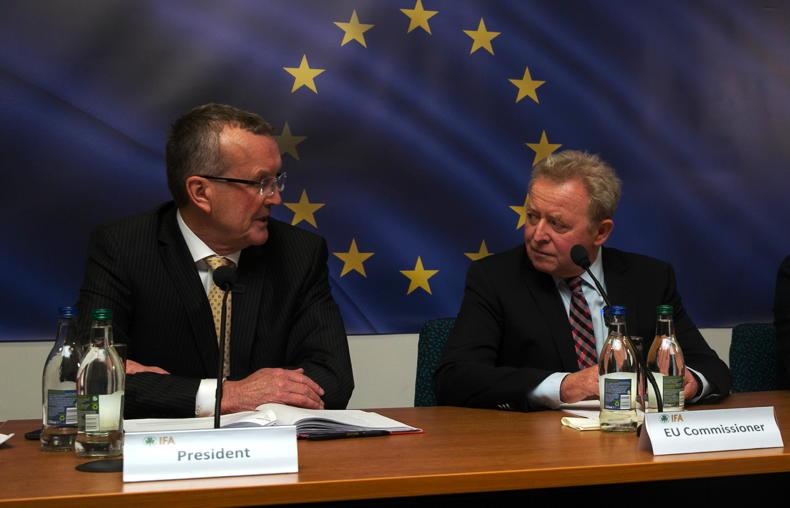
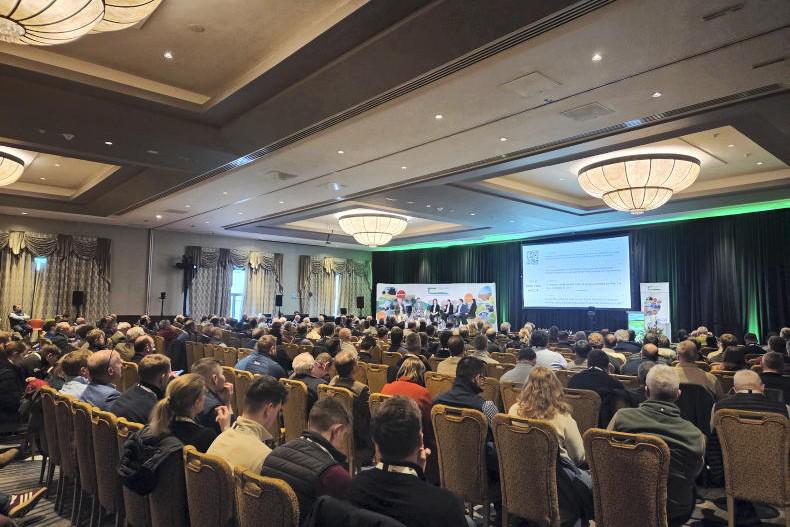

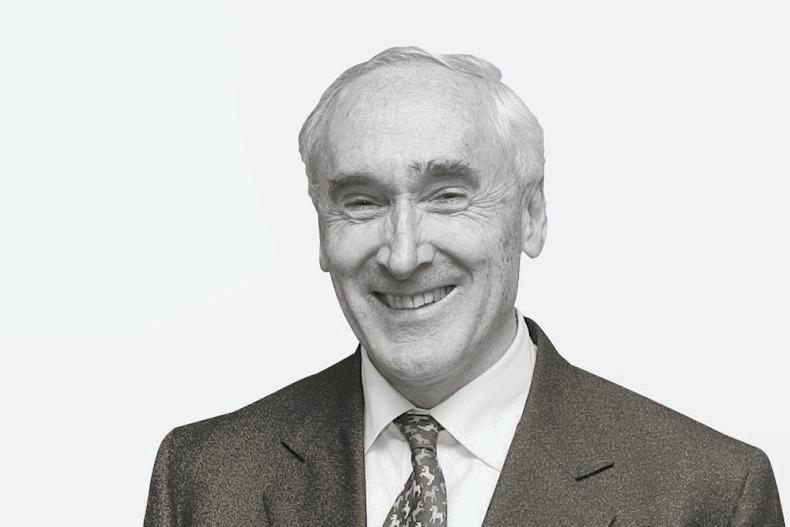


SHARING OPTIONS